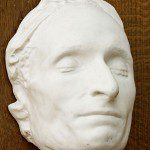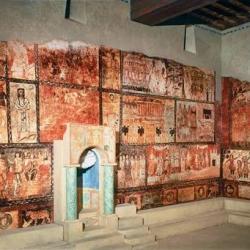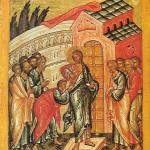Psalm 14:2-3 (RSV)
Who knows not the complaint of David . . . — and who knows not on the other hand that there were many good people in his day? [see Ps 7:10; 11:2, 5, 7; 15:2-5; 18:23, 25-26; 24:4; 31:18; 32:11; 33:1; 34:17, 21; 36:10; 37:14, 16, 18, 21, 25, 28-32, 37, 39; 52:6; 55:22; 58:10-11; 64:4, 10; 68:3; 73:1; 75:10; 84:11; 92:12; 94:15; 97:11; 101:6; 107:42; 111:1; 112:2, 4-9; 118:20; 119:1, 10; 125:3-4; 140:13; 141:5; 142:7: “upright,” “good,” “righteous,” “blameless,” “pure”] These forms of speech are frequent, but we must not draw a particular conclusion about each individual. Further, — such things do not prove that faith had failed in the Church, nor that the Church was dead: for it does not follow that if a body is everywhere diseased it is therefore dead. Thus, without doubt, are to be understood all similar things which are found in the threats and rebukes of the Prophets.
(The Catholic Controversy, 61-62)
I added the additional scriptural proofs in brackets and blue color, to bolster what St. Francis assumed as self-evident. Likewise, Isaiah states: “all our righteous deeds are like a polluted garment . . . There is no one that calls upon thy name,” (Is 64:6-7), yet makes frequent reference to the righteous, just as in the Psalms (1:17; 3:10; 26:7; 33:15; 38:3; 51:7; 56:1; 57:1-2, 12; 64:5). Isaiah 64:6-7 is typical Hebrew hyperbole. But Protestants, and especially Calvinists with their unbiblical notion of total depravity (not understanding the literary genre) interpret it and similar passages literally. In context, clearly it is not intended to be so. In the passage immediately before (Is 64:5), the prophet states: “Thou meetest him that joyfully works righteousness.”
***


















